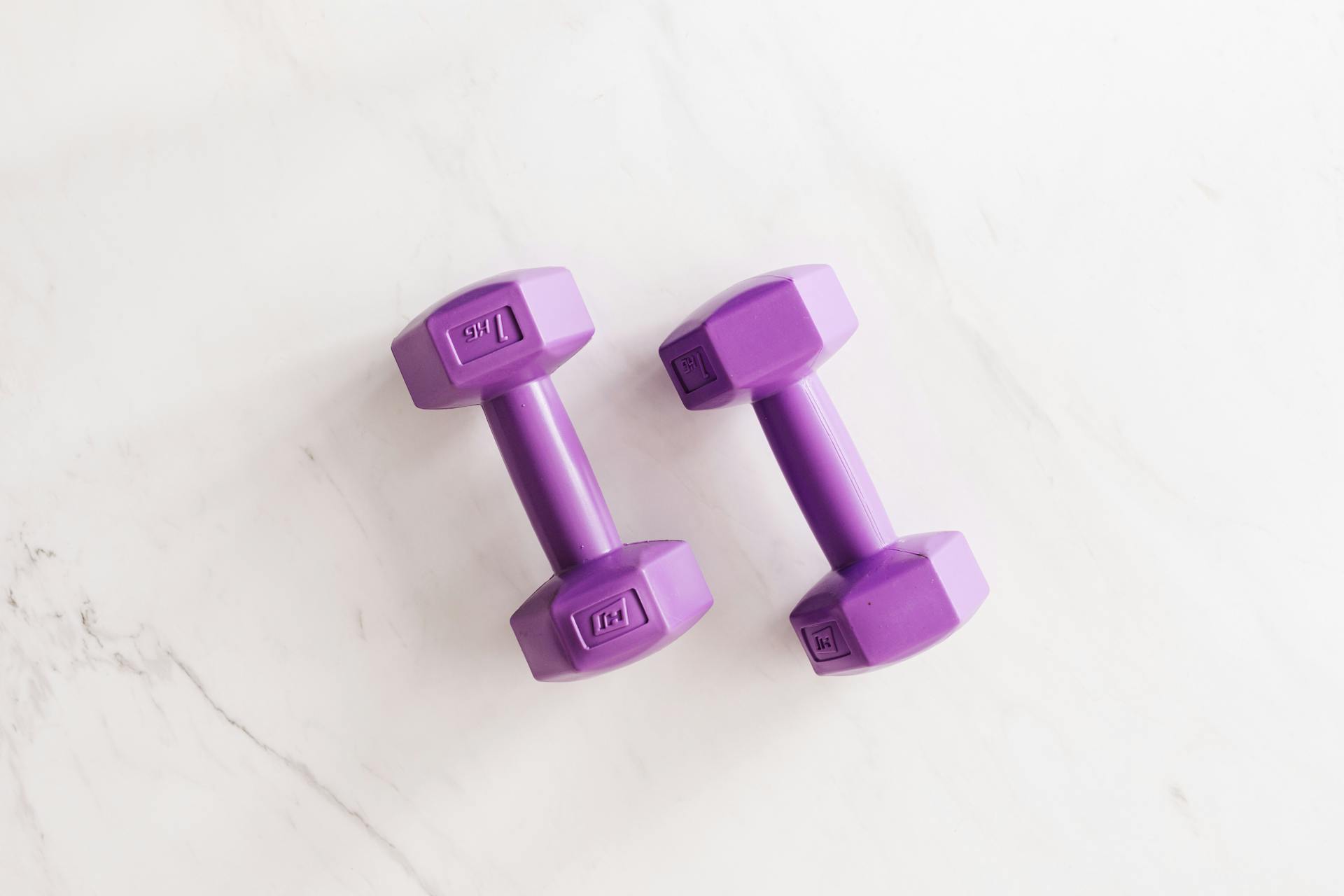
If you’ve found yourself facing the challenge of getting back into running after gaining weight, it can be a struggle to know how to start. Luckily, there are some practices you can implement to make the process much easier and get you back on track in no time.
The first thing to recognize is that it’s ok to take it slow. If you’ve gained a lot of weight, your body needs time to adjust and a slower return will minimize the risk of injury. Start by taking regular walks outside each day or performing simple exercises at home like sit-ups and push-ups. This will gradually increase your physical stamina and get your body used to the idea of being active again.
Incorporating strength exercises into your routine is also important for improving overall fitness and health. You don’t need an expensive gym membership - basic bodyweight exercises like squats and lunges can be done at home with very minimal equipment. By strengthening your core muscles, you can create a strong, supportive foundation for when it comes time to start running again.
Finally, set achievable goals that keep you motivated and make sure that you stick with them. When actually hitting the pavement or the track, begin by alternating between walking and running for short distances so that your body isn’t overworked too quickly. As you get stronger, gradually increase the duration and speed of each run until you’re able comfortably complete full jogs without breaking a sweat! Finally, remain consistent with your running routine - with consistent effort over time, getting back into shape will become much more manageable as you move forward.
Getting back into running after gaining weight may seem daunting; however, by making small but regular improvements in physical activity along with consistent goals, this goal will be attainable in no time!
You might like: Increase Basketball Iq
How can I kickstart a running routine after gaining weight?
Physical activity may seem daunting to those who haven't been living an active lifestyle, or have gained weight from having a poor diet. But kickstarting a healthy running routine after gaining weight is simple and very possible with the right approach and attitude.
First, it's important to find the right type of running shoe that meets your needs and suits your feet. Consider finding an expert who can help you size your feet and try on different shoes until you are comfortable with the fit. Picking out good quality shoes that provide support and shock absorption can be both a time consuming and important part of kickstarting a healthy running routine.
Second, begin by incorporating intervals into your exercise plan with alternating walking and running at shorter distances. It's important to start slow, taking small steps to reach your desired running goal without putting too much strain on your body while you build up endurance. Becoming familiar with various routes in your area or taking part in group runs can be an encouraging way to stay motivated even when motivation is lacking. As you get more comfortable with running, gradually start increasing the speed of intervals until you eventually reach a full run.
This will allow for an enjoyable and less stressful experience for those transitioning from being relatively inactive to a dedicated runner focusing on the long-term goals of better health and overall fitness level improvement.
Finally, reward yourself for each achievement made during your running journey; whether that's reaching a goal weight or simply completing each session with increasing intensity - something as simple as treating yourself to something new clothing wise along the way can help keep you motivated throughout the process!
For more insights, see: Ways to Gain Weight Fast
What exercises can help me build endurance for running after gaining weight?
As a runner, gaining weight can hinder your performance, especially when it comes to physical activities that involve endurance like running. Fortunately, there are specific exercises you can follow that will help you build your endurance and get back into running in no time!
An important first step is to focus on developing your muscular strength. This could involve doing weight-training exercises as these help to promote muscle growth and improve your overall muscle composition. Common exercises include squats, deadlifts and lunges - all of which work the muscles in your legs and lower body to create a better foundation for running again.
Cardio-related activities are also very important for improving endurance. Start by adding moderate-intensity aerobic exercises such as cycling or swimming at least three times a week for 20 to 30 minutes at a time. As you become comfortable with the activity, you can increase the amount of exercise time or intensity for an even bigger improvement in endurance.
To wrap things up, when it comes to building your endurance after gaining weight, it is essential that you create an exercise routine that meets both the physical demands of long-distance running while also helping you regain lost muscle mass. By combining proper nutrition with strength and cardiovascular training, along with regular running practice, you will be able to see tangible improvements in your performance and get back on track in no time!
Readers also liked: Lose Weight
What tips can I follow to ease back into running after gaining weight?
As someone who has recently gained weight, the thought of picking up running again may seem daunting. But fear not – with a few helpful tips, you can ease back into running and use it as a tool to help you reach your fitness goals.
First, it’s important to start slow. Don’t try to do too much too soon! Start small, such as setting out with the mindset of completing a short 5-10 minute jog and then gradually increasing your distance and time once you feel comfortable. Another suggestion is to set yourself small achievable goals. This can give you motivation to continue reaching further milestones in your journey – no matter how big or small! Additionally, keep the bigger picture in mind and focus on celebrating the process rather than solely aiming for the destination.
Finally, it’s essential that you stay consistent! With any form of physical activity, exercise must be done regularly in order for one to make progress and see results. Make sure that you schedule time for running at least once or twice a week and stick to your plan! If time is an issue for you, look for alternative ways of fitting exercise into your daily routine such as taking walks during lunch or going on hikes whenever possible.
With dedication and commitment over time, the rewards from running will be worth it! Follow these tips and before you know it, you'll be back on track in no time.
Recommended read: Tennis Ball Relieve Back Pain
How can I motivate myself to continue running after gaining weight?
If you’re like many runners that have gained a few extra pounds after taking a break from running, it can be difficult to motivate yourself to head back out and keep logging the miles. The task might seem insurmountable and not even worth the attempt. With some careful consideration, however, regaining all your old running mojo is totally doable. Here are a few tips to help you get back into running after you’ve gained weight:
First, reassess your expectations. Go easy on yourself by setting realistic goals that aren’t predicated upon previous speeds and distances. Focus on creating healthy habits that will help you lose the excessive weight slowly and steadily instead of fixating on the number on the scale. Concentrate on slowly increasing your speed and distance, doing gentle stretching before and after running, and rewarding yourself for small accomplishments.
Second, don’t be ashamed or embarrassed about your current weight as this won’t motivate or inspire but further discourage you from getting out there in the first place. Instead be kind to yourself by accepting where you are today and being proud of whatever (and however little) progress you make along your journey to getting back into shape. Burned out runners often try too hard which leads them straight back into burnout; give yourself permission to take it slow!
Finally, use the right gear when heading out for runs as you wouldn’t want something that would chafe or become uncomfortable quickly while running in increased body weight conditions. Invest in a pair of good-fitting breathable running shoes meant for comfort and support so that nothing stands between you and rekindling your inner flame!
What types of running workouts are best for someone who has gained weight?
Running is an excellent form of exercise for people who have gained weight and want to get back into shape. When combined with a healthy diet and proper rest, it helps to burn calories, reduce fat and improve overall fitness. However, it’s important to find the right kind of running workouts in order to get the most benefit.
For beginners, a simple jogging routine is often the best way to start. Slow running (or "jogging") at least three days a week helps burn calories while not overstressing the body. Start by running a few minutes at first, then slowly working up to 15-20 minutes over time. Most importantly, make sure that you run at a comfortable pace as this will help you stay motivated and prevent injuries by giving your body adequate time to adjust to running as a form of exercise.
If you have more experience and have gained some cardio endurance from regular jogging sessions, then add some intervals into your workouts. Interval training is when you alternate between running quickly for quick bursts (30-60 seconds) and then slow down for rest periods (up to two minutes). This type of workout is helpful for burning fat and will also allow you to build up more stamina for longer runs later on.
Finally, if you're looking for a more challenging workout routine with dramatic results then adding some hills into your running routine can be incredibly beneficial. Exploring different kinds of terrain allows your muscles to work harder as they adapt to different slopes, which can help jumpstart weight loss while still giving you an effective aerobic workout. Hill sprints are also good option if you are stuck in one spot since they don’t require the same amount of space. Just make sure that in order not to overexert yourself by going too hard right off the bat--make sure that all of these workouts are done safely!
You might enjoy: Who to Call When You Run Out of Gas?
What safety guidelines should I follow when beginning to run after gaining weight?
If you’ve recently gained weight and have decided it’s time to take up running, you naturally may be unsure of the steps to properly begin without injuring yourself. Safety is paramount and the primary focus should be on building up an appropriate level of strength and endurance before attempting any kind of long distance runs. Whether you are a complete beginner or have experience running but have been inactive for some time, following these safety guidelines for running after gaining weight can get you on the path to a healthier, more active lifestyle.
The most important factor when beginning to run is to build gradually. Start out with short intervals while increasing your difficulty and duration over time. Aim realistically so that you remain consistent in your progress but don’t push beyond what your body can safely handle. This could take weeks or even months depending upon how overweight you are, but remember that progress is progress no matter how slow it may feel.
In addition, make sure to factor in rest days between running days so as to give your body ample opportunity to recover and strengthen itself in order to prevent any injuries while on the track. Additionally, proper pre-run routines like stretching, warm-up jogging, dynamic stretching and post-run cool down exercises such as foam rolling should further help reduce chances of injury from running after gaining weight.
Finally, don’t forget about dietary habits; ensure that all food consumed prior to running provide enough energy for the run and aid with muscle recovery afterwards. Proper nutrition can go a long way in helping maintain prolonged endurance as well as support your efforts in weight loss initiatives which for some may be an additional goal of starting running after gaining weight.
By taking these extra precautionary steps of transitioning into running at a slower pace than normal runners and applying proper dietary habits along with warm up/cool down routines - even those who have gained some additional pounds will be able to enjoy a more healthy lifestyle while creating positive habits towards sustaining a safe environment when hitting the tracks!
For another approach, see: What to Wear When Running in Rain?
Sources
- https://onfootblog.com/how-to-get-back-into-running-after-gaining-weight/
- https://www.runnersworld.com/uk/training/cross-training/a33573783/a-runners-guide-to-strength-training/
- https://nolimitstiming.com/how-to-get-back-into-running-after-gaining-weight/
- https://bestplaygear.com/how-to-get-back-into-running-after-gaining-weight/
- https://www.healthline.com/health/exercise-fitness/running-with-weights
Featured Images: pexels.com


